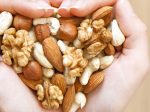 Many secondary school athletes are training for more than 10 hours per week and are competing nationally or alongside adults in events such as The Kathmandu Coast to Coast, La Grande Swim, Le Race etc.
Many secondary school athletes are training for more than 10 hours per week and are competing nationally or alongside adults in events such as The Kathmandu Coast to Coast, La Grande Swim, Le Race etc.
At a time when they are also growing, young athletes may need as much as 50% more protein than their more sedentary peers. So should this extra protein be consumed from whole foods or supplements?
Protein overview
- The role of protein
Remember…protein aids growth and tissue repair. It also assists hormone and enzyme production; aids immunity; oxygen transport; the production of neurotransmitters important for thought processes and mood. Protein also aids the storage of glycogen following exercise thereby aiding recovery etc. So, protein is pretty important to athletes and in fact all of us for active daily living. - What is it?
Protein is made up of 20 amino acids that are widely distributed in animal and plant-based food of which 8 are considered to be essential as they cannot be made by the body and must be consumed from our diet in order to build muscle and to grow. - The quality of protein
This depends on how well it can be absorbed. Foods that are rich in essential amino acids and that can be absorbed easily for protein synthesis (i.e building)) are considered to be ‘complete’ and have a high biological value.
All animal foods- e.g. meat, fish, egg and milk products fall into this category along with some plant foods e.g. soybean (tofu, tempeh, edamame beans, soy milk), quinoa, buckwheat, pumpkin and chia seeds.
Most other plant-based proteins contain only some of the essential amino acids and so are considered to be ‘incompete’ and of low biological value.
Despite their difference in quality amino acids tend to pool together each day and provided there are enough essential and non-essential amino acids and energy to meet the daily needs then body building can occur. - Branched chain amino acids (BCAA)
Leucine is one of 3 BCAA and has attracted a lot of research in recent years as it aids recovery of muscle after exercise. This amino acid can be found in meat and milk. Milk is made up of 80% casein and 20% whey. The leucine content of whey has been found to be particularly high and is easily digestible. As it also has a high BV a dose of 2-3g of Leucine per day can benefit athletes wishing to build up muscle. This finding has led to the development of a number of commercially available supplements and protein powders.
However before they reach for these products athletes should be aware that this same amount of Leucine can also be found in each of the following: 600mls skim milk; 120g beef; 70g cheese; 400g yoghurt; 3 eggs; 130g almonds; 6 cups of cooked rice and 9 slices of bread. As these foods are also a good source of energy, iron, calcium, zinc and many B group vitamins needed by athletes, these whole foods should not be over looked.
Are protein supplements necessary?
As the cost of living bites parents regularly ask me if their athletic children really needs expensive protein bars, shakes and powder in order to grow and compete?
Protein is regularly being turned over in our bodies as tissue is built up and then replaced. In adolescence there is more protein synthesis (building) than degradation (loss). So although it does take a lot of protein to build up muscle and for it to adapt and recover from exercise, most young athletes do meet their daily protein requirement of 15%-20% of total kilojoules by eating a normal diet without the need for extra protein supplements. 1 This is helped by the fact that generally athletes have huge appetites and protein is available in a wide range of foods
Factors related to building muscle and growth
Protein is not the only piece of the puzzle
To build muscle the body not only requires protein but also energy from carbohydrate and healthy fats to fund the body building process as well as resistance exercise.
Muscle strengthening exercise could include games like tug of war, modified push ups (for children) or push ups and pull downs( for young people), sit ups, swinging on playground equipment or bars and resistance exercises with exercise bands.
Bone growth also requires protein as well as calcium phosphate, phosphorus, Vitamin A, D and C, magnesium and fluoride found in whole foods.
Bone strengthening exercise could include hop scotch, trampolining, gymnastics, playing basketball or volleyball etc.2
Building muscle and bone takes time
Athletes impatient to build up muscle to enter competitions or to gain team selection need to take extreme care. Trying to undertake resistance exercise using heavy weights at a gym, when bones are still growing, can cause injury.
The over development of muscles in this way can lead to serious stress being placed on growth plates in joints, discs in the back and also tendons attaching muscle to bone. If damage does occur with overtraining these injuries can be very painful and take a long time to heal.
There is an upper limit to protein intake
This has been estimated for adults to be around 25% of total energy needs after which point extra protein is simply broken down in the liver for energy producing glucose and fatty acids in a process known as glyconeogenesis.3 (Protein breakdown also produces nitrogen, which is removed by the kidneys and passed as urine).
While no upper limit of protein intake has been established yet for children providing more protein than the body needs will not promote their faster growth
When we eat and how much we eat matters too
The timing of protein intake, rather than the total daily intake per se, is important for building skeletal muscle in response to resistance training. The consumption of 20g of high-quality protein throughout or immediately after strength training enhances the muscle protein building (synthesis) in response to training.4
To assist growth, rather than relying on one large protein meal in the evening research has found that it is better to spread lean high quality protein intake evenly across the 3 main meals of the day. Providing a smoothie (using fat reduced milk and fruit) and a snack such as a sandwich or roll when they come home from school or sports practice is the ideal way for adolescent athletes to recover and to meet any additional protein requirements for training.
If protein containing supplements and sports foods are to be recommended to adolescent athletes their only purpose would be to provide a convenient source of protein to fit within an athletes training plan or during competition rather than being additionally required as a dietary supplement or added to their lunchboxes each day 5
Don’t forget the role of sleep
This is also important to growth with 95% of our daily growth hormone being released when we sleep 6
How much protein do we need?
The Recommended daily intakes of protein for young people
| Age | RDI | |
| Children | 4-8 yrs | 20g/d (0.91g/Kg/d) |
| Boys | ||
| 9-13 yrs | 40g/d (0.94g/Kg/d) | |
| 14-18 | 65g/d (0.99g/Kg/d) | |
| Girls | ||
| 9-13 yrs | 35g/d (0.87g/Kg/d) | |
| 14-18yrs | 45g/d (0.77g/Kg/d) |
Based on material provided by the National Health and Medical Research Council 3
Adults require around 0.8g/kg body weight/day for non-exercising individuals and between 1.3-1.8g/kg body weight/day for competitive and elite athletes, 1.8-2g/kg body weight/day if involved in high frequency/-intensity training. 4
Adolescents involved in heavy exercise can maintain a positive nitrogen balance around 1.2-1.6g/kg
body weight/day. 7
Who is at risk of protein deficiency?
Energy deficiency and eating disorders
A lack of both protein and energy is referred to as protein energy malnutrition (PEM). This is often associated with hunger seen in third world countries, but this is essentially what also happens in athletes who exhibit wasting symptoms seen in eating disorders such as anorexia nervosa.
Children who are fussy eaters
Or children affected by health conditions and are failing to thrive may also be affected in this way. When athletes have specific dislikes of some protein foods or need to avoid some protein foods due to food allergy or intolerance this can limit their overall choice and therefore the variety of nutrients and energy in their diet. A Sports Dietitian can help you find alternative food replacements
Vegetarian and vegans
These athletes need to be encouraged to consume a wide range of plant-based proteins in order to meet their daily protein and amino acid requirements. Good examples include pumpkin seeds, lentils, black beans, almonds, tempeh, tofu, oats and quinoa. There is some concern that vegetarians may need to consume more protein than meat eaters to compensate for the poorer digestibility of plant-based sources. A sports dietitian can advise 8
Weight categorised sport
Some athletes compete in categories that are weight dependent such as ballet, light weight rowing, equestrian etc. While they may have high protein needs to maintain muscle strength and stamina they may fear that any gain in weight will result in disqualification. This can create an unsafe environment that can lead to eating disorders. If you have concern then talk to your GP without delay
Greater energy and protein needs
In the acute phase of injury, trauma, fracture or stress the need for more protein and energy may increase. A Sports dietitian can assess this and offer appropriate advice. This will be particularly important in the case of injuries to the head such as in the case of jaw or oral surgery affecting food intake and the ability to chew.
High protein diets are not without risk
While protein is essential to good health and growth (as mentioned earlier) eating more protein than a child needs will not speed up this process and in fact can:
- Increase the risk of dehydration
- Increase saturated fat and cholesterol intake raising the risk to cardiovascular health.
- Increase calcium excretion risking loss of bone density
- Increase the ratio of protein to carbohydrate resulting in weight loss
- Increase sodium intake once again reducing bone density and increasing blood pressure.Athletes under 18 years who might be considering building up their muscle mass should discuss this with their doctors first, have some blood tests and see an Accredited Sports Dietitian.
Sports supplements and unintentional doping
As athletes seek to find a winning edge in performance, the pressure to reach beyond their own physical capabilities, by using sports supplements can be immense. While some supplements are well recognised as being useful to performance, others can lead to positive drug testing and disqualifications as well as endanger long-term health 9 As sports supplements are now available cheaply over the internet this is becoming a real problem.
Under the World Anti-doping Agency (WADA) strict liability rule, if an athlete takes a banned substance that subsequently leads to a positive doping test they can be disqualified for a number of years which can greatly affect their future career in that sport and travel. 10
The Australian Institute of Sport (AIS) has developed a classification system (known as ABCD) to enable athletes to have greater clarity regarding the safety of supplements and to determine whether a product is safe, legal and effective in improving sports performance. 11
In association with Sports Integrity Australia (SIA) and endorsed by Drug Free Sport NZ, this program has been extended to provide third party auditing and batch testing systems (i.e. HASTA, Informed sport and Global DRO) which focuses on sports foods and individual ingredients rather than supplements products or brands to determine their safety.12
Protein fortified foods (PFF’s) 13
Many everyday foods such as yoghurt are now being fortified with protein. Are they a risk?
- No. Foods that are commercially manufactured in NZ and Australia under the Food Standards (FSANZ) such as are found in our supermarkets, pose no additional risk of containing WASA prohibited substances than other processed foods with mixed ingredients.
- The main concern is with PFF’s -smoothies, protein balls, protein bars or slices available at café’s, food outlets and markets. These may be prepared onsite with isolated protein supplement providers or procured pre-prepared with unidentified protein ingredients. These PFF’s present a higher contamination risk with WASA banned substances due to the lack of clarity of the source of the isolated protein ingredients alongside possible inclusion of novel herbal /botanical ingredients e.g. Hemp.
Concerns regarding hemp relate to the isolated protein ingredient source of hemp that may contain traces of the WASA prohibited substance Tetrahydrocannobinol (THC) and other Cannabinoids. This is inherent to the ingredients not introduced via contamination during the manufacture of the protein.
NB: Informed Sport currently does not allow any cannabinoid containing products onto the Informed Sport programme. This includes CBD extracts, gummies, hemp protein, and others that knowingly contain CBD or THC.
If you are interested in an assessment of your current protein intake or would like a sports nutrition plan to suit your age or activity level then contact me today
Keen to learn more?
Buy my new book How to Grow an Athlete: From Playground to Podium which covers issues such as
- How much protein is in animal and plant foods
- What is a plant-based diet?
- Alternative protein sources for vegetarian and vegan athletes
- How to manage weight issues safely while still growing
- The importance of the timing of food and exercise for better performance
- Building immunity
- More on sports supplements
- Foods associated with better sleep
- Recipes and nutrition information to suit the whole family
References
- Aerenhouts, D., et al., ‘Energy and macronutrient intake in adolescent sprint athletes: a follow-up study’, 73–82.
- Physical activity’, Ministry of Health, https://www.health.govt.nz/our-work/preventative-health-wellness/physical-activity.
- ‘Nutrient Reference Values for Australia and New Zealand’, 16 January 2020.
- Phillips, S.M., Van Loon, L.J., ‘Dietary protein for athletes: from requirements to optimum
adaptation’, S29–S38 - Desbrow, B., et al., ‘Sports Dietitians Australia Position Statement: Sports nutrition for the adolescent athlete’, 570–84.
- O’Donnell, S., et al., ‘From pillow to podium: a review on understanding sleep for elite athletes’, 243–53.
- Aerenhouts, D., Deriemaeker, P., Hebbelinck, M., Clarys, P., ‘Energy and macronutrient intake in adolescent sprint athletes: a follow-up study’, Journal of Sports Sciences, 2011, 29(1), 73–82.
- Kriskern, M.A., Johnston, C.S., ‘Protein dietary reference intakes may be inadequate for vegetarians if low amounts of animal protein are consumed’, 727–30; Loucks, A.B., Energy balance and body composition in sports and exercise’, 1–4.
- Mountjoy, M., Sundgot-Borgen, J., Burke, L., Carter, S., Constanti, N., Lebrun, C., Meyer,
N., Sherman, R., Steffan, K., Budgett, R., Arue, L., ‘The IOC consensus statement: beyond the Female Athlete Triad – relative energy deficiency in sport (RED-S)’, British Journal ofSports Medicine, 2014, 48, 491–97.
- Factsheets’, Sports Dietitians Australia.
- The ABCD Classification System’, Australian Sports Commission https://ais.gov.au/nutrition/supplements
- Stening, LB. How to Grow an Athlete: From Playground to Podium : Sports supplements pg 179. Quentin Wilson Publishing 2022
- O’Bryan K et al (2021) Understanding contamination risk associated with protein fortified foods (AIS)
https://www.sportsdietitians.com.au/wp-content/uploads/2021/10/Protein-Fortified-Foods-Report.pdf
































































Leave a Reply